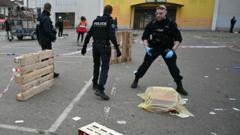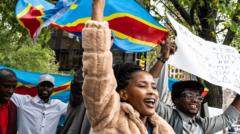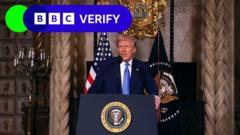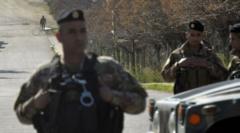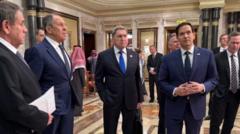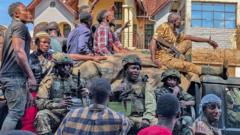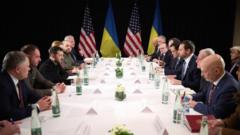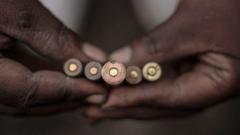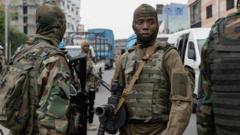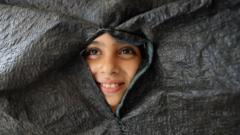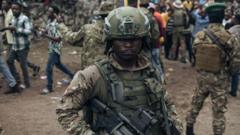In the wake of a swift and violent rebel takeover of Goma, residents are struggling with food and water shortages as the Congolese military crumbles amidst widespread anger towards President Tshisekedi.
Tumultuous Times in Goma: The Fallout from Rebel Takeover

Tumultuous Times in Goma: The Fallout from Rebel Takeover
The city of Goma faces severe humanitarian challenges following a takeover by Rwanda-backed rebels, leaving residents in despair and military personnel disillusioned.
In a startling turn of events, Goma, a bustling city in the eastern Democratic Republic of Congo, has fallen under the control of Rwanda-backed rebels, specifically the M23 militia, after fierce conflicts that have left the area in turmoil. The takeover has left approximately two million residents grappling with dire shortages of essential resources like food and water.
Reports from Goma indicate that hospitals are overwhelmed, treating a wave of injuries sustained during the fighting. The city morgue is filled to capacity, a grim echo of the city's chaos. As civilians tentatively emerge from hiding, the gravity of their situation is painfully clear—previously assured safety from the Congolese military has evaporated, with many soldiers left feeling abandoned.
Captured soldiers from the Congolese army express their fury towards President Felix Tshisekedi, with accusations of betrayal reverberating among their ranks. Many soldiers recall a harrowing night when their commanders chose to flee, leaving behind both their troops and essential equipment. The resentment is palpable, with threats of retribution directed not only at their military leaders but also at the sitting president.
“Felix will pay for this,” declared one of the captured soldiers, expressing a longing for accountability amid the chaos. This sentiment underscores the growing disillusionment with government leadership at a critical time, as the military’s efforts to protect the city have crumbled under the pressure of the insurgency.
The humanitarian crisis now unfolding in Goma poses a serious challenge, emphasizing the need for urgent international attention and support as the almost two million civilians in Goma face uncertainty and hardship following the conflict.
As the situation develops, observers note that the implications of this takeover extend beyond local issues, raising questions about regional stability, the role of foreign militias, and the future of governance in the Democratic Republic of Congo.
Reports from Goma indicate that hospitals are overwhelmed, treating a wave of injuries sustained during the fighting. The city morgue is filled to capacity, a grim echo of the city's chaos. As civilians tentatively emerge from hiding, the gravity of their situation is painfully clear—previously assured safety from the Congolese military has evaporated, with many soldiers left feeling abandoned.
Captured soldiers from the Congolese army express their fury towards President Felix Tshisekedi, with accusations of betrayal reverberating among their ranks. Many soldiers recall a harrowing night when their commanders chose to flee, leaving behind both their troops and essential equipment. The resentment is palpable, with threats of retribution directed not only at their military leaders but also at the sitting president.
“Felix will pay for this,” declared one of the captured soldiers, expressing a longing for accountability amid the chaos. This sentiment underscores the growing disillusionment with government leadership at a critical time, as the military’s efforts to protect the city have crumbled under the pressure of the insurgency.
The humanitarian crisis now unfolding in Goma poses a serious challenge, emphasizing the need for urgent international attention and support as the almost two million civilians in Goma face uncertainty and hardship following the conflict.
As the situation develops, observers note that the implications of this takeover extend beyond local issues, raising questions about regional stability, the role of foreign militias, and the future of governance in the Democratic Republic of Congo.

